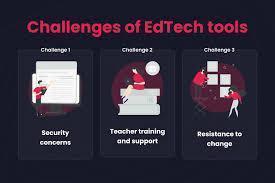



The education technology (EdTech) sector has witnessed tremendous growth over the past decade, and 2025 promises to be a year where innovative startups will continue to redefine the learning landscape. As education increasingly shifts to digital platforms, new companies are emerging with solutions that tackle everything from personalized learning to virtual classrooms.
In this article, we’ll explore some of the best EdTech startups to watch in 2025, their unique contributions to the education sector, and how they are transforming learning experiences for students and educators worldwide.
Byju’s, the India-based EdTech giant, has already made waves globally and continues to be one of the fastest-growing education companies. With a strong focus on K-12 education, competitive exams, and upskilling, Byju’s uses adaptive learning technologies to provide personalized learning paths.
In 2025, Byju’s is expected to further expand its offerings in new markets, including corporate learning solutions and professional certifications. The startup has made significant acquisitions in recent years, including the popular coding platform WhiteHat Jr., and its aggressive expansion into international markets positions it as a key player in global education.
✅ Key Areas: Personalized learning, interactive content, upskilling, global expansion.
Unacademy has positioned itself as one of India’s leading EdTech platforms for competitive exams. With a comprehensive array of online courses for exams like UPSC, JEE, NEET, and more, the startup’s video lectures and live sessions have become a favorite among students across the country.
Looking ahead to 2025, Unacademy plans to expand into new verticals like career coaching, K-12 education, and skill development courses for professionals. Their focus on high-quality content and live interaction with top educators is likely to continue attracting learners, especially those preparing for challenging exams.
✅ Key Areas: Competitive exam preparation, professional development, live learning.
Duolingo, the popular language learning platform, has redefined how people learn new languages with its gamified, user-friendly approach. In 2025, Duolingo is expected to enhance its artificial intelligence capabilities, making the learning experience even more personalized and adaptive. The platform already offers more than 30 languages, and its mobile-first design makes it accessible to learners worldwide.
Duolingo’s expansion into certifications and international exams, such as the Duolingo English Test, is also an area to watch in the coming years.
✅ Key Areas: Language learning, AI-powered personalization, gamification.
Kahoot! is a globally recognized platform that enables teachers to create interactive quizzes and learning games for students. It’s an essential tool in classrooms, helping educators engage students in fun and exciting ways. Kahoot! has now expanded its platform to include a broader range of tools for collaborative learning and assessment.
In 2025, Kahoot! is expected to focus on integrating AI and virtual reality into its quiz-based learning, offering even more immersive and dynamic learning experiences for both students and teachers.
✅ Key Areas: Gamified learning, student engagement, AI, VR.
Knewton, now part of Wiley, is an adaptive learning technology platform that tailors educational content to students’ individual needs. Knewton’s proprietary technology is used to personalize content, optimize learning paths, and improve student outcomes, making it a valuable tool for both K-12 and higher education.
By 2025, Knewton plans to further develop its offerings in data-driven education, expanding its partnerships with both educational institutions and publishing companies to provide highly customized learning experiences.
✅ Key Areas: Adaptive learning, data-driven insights, personalized education.
ClassDojo has emerged as a popular platform for elementary and middle school students, helping teachers communicate with parents and track student progress in real time. It provides a simple yet effective way for educators to share classroom activities, updates, and feedback with parents, enhancing the learning experience for students.
In 2025, ClassDojo plans to introduce new features that further streamline parent-teacher communication and continue to focus on creating a positive classroom culture.
✅ Key Areas: Classroom communication, student engagement, parent-teacher collaboration.
Teachable allows creators, educators, and professionals to build and sell online courses. With its easy-to-use platform, Teachable is empowering people around the world to monetize their expertise and share knowledge.
By 2025, Teachable is likely to integrate more AI-powered tools to help course creators develop more effective educational content and track student progress. This will further enhance the platform’s appeal to both instructors and learners looking for flexible, self-paced learning opportunities.
✅ Key Areas: Online course creation, professional development, AI-powered tools.
Outschool is an innovative platform that offers live online classes for children, covering everything from math to creative arts and coding. The startup has created a unique space for niche learning, where educators can offer specialized courses outside the traditional school curriculum.
By 2025, Outschool is expected to expand its library of courses, reaching more students and diversifying into adult education and life skills training.
✅ Key Areas: Live classes, extracurricular learning, niche courses for children.
Labster is a virtual lab platform that provides high school and college students with access to immersive science simulations. Through virtual labs, students can conduct experiments and learn scientific concepts in a controlled and engaging environment, all from the safety of their homes.
By 2025, Labster plans to expand its offerings to include more subjects, partnerships with universities, and integrations with other EdTech platforms, ensuring a richer learning experience.
✅ Key Areas: Virtual science labs, immersive learning, experiential education.
Remind is a communication platform designed to facilitate communication between educators, students, and parents. It allows teachers to send messages, reminders, and updates, helping students stay organized and engaged with their coursework.
In 2025, Remind is expected to introduce new features that integrate more learning tools and support for asynchronous learning, making it an even more versatile platform for educators and students.
✅ Key Areas: Communication tools, student engagement, reminders.
The EdTech startups listed above represent a shift toward personalized, flexible, and immersive learning experiences. They all use technology to solve specific challenges in education, making learning more accessible, engaging, and effective. Whether it’s through AI, gamification, virtual labs, or live classes, these startups are driving innovation in the education sector.
As we look to the future, these companies are setting the stage for a new era of learning—one that is more personalized, interactive, and inclusive. Whether you’re a student, educator, or industry professional, 2025 will be an exciting year for the world of EdTech.
The world of education is evolving rapidly, and EdTech startups are at the forefront of this transformation. As these startups continue to innovate, we can expect to see more personalized, accessible, and engaging learning experiences for students worldwide. Whether you’re an educator looking to incorporate new tools into your classroom, a student seeking flexible learning options, or an investor keeping an eye on the next big thing in EdTech, the future looks incredibly promising.
Successful EdTech startups often focus on solving specific challenges in the education sector, whether it’s increasing accessibility, personalizing learning, or enhancing engagement through technology.
EdTech startups can complement traditional education systems by providing innovative tools and resources that enhance learning, making it more flexible and accessible to a global audience.
Yes! Many EdTech platforms cater to different age groups, from K-12 students to university students and adult learners, offering a wide range of content and learning experiences.
Challenges faced by EdTech startups include scalability, competition, user adoption, access to technology, and the ability to create content that meets diverse learning needs.
If you’re interested in investing in EdTech startups, consider exploring venture capital opportunities or following specific companies through platforms like AngelList or Crunchbase to stay updated on funding rounds and opportunities.
#trending #latest

Visa Cancellations Spark Confusion as U.S. Universities Seek Answers... Read More.

The Importance of Student Accommodation for Academic Success... Read More.
 Australia drops WFH change plan
Australia drops WFH change plan
PM candidate backs off WFH ban, keeping remote work alive.
 Faulty Antenna Caused Crash
Faulty Antenna Caused Crash
Antenna fault led to deadly Aussie helicopter accident.
 Canada-Australia Radar Deal
Canada-Australia Radar Deal
C$6bn Canada-Australia radar deal for Arctic defense
 Study Visa Changes: 2025
Study Visa Changes: 2025
New visa rules affect Indian students abroad in 2025.
 O’Brien Edges Ahead of Bowen
O’Brien Edges Ahead of Bowen
O’Brien holds clear lead over Bowen in recent showdown.
 China Holds Talks After Trump Jolt
China Holds Talks After Trump Jolt
Beijing in crisis mode after Trump’s unexpected move.
 BioVersys IPO Hits Swiss Market
BioVersys IPO Hits Swiss Market
BioVersys starts IPO season on SIX Swiss Exchange.
© MyEduGoal. All Rights Reserved. Design by markaziasolutions.com